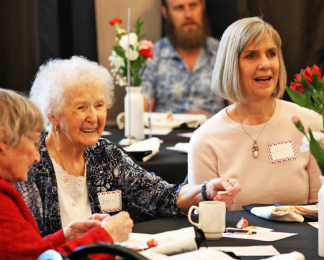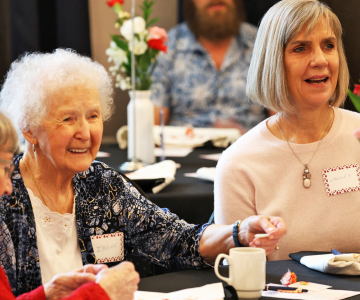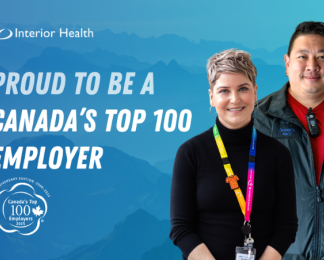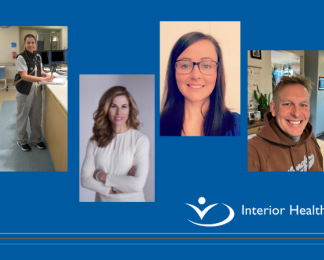Marilyn Parker’s health-care journey has given her a unique perspective on how volunteers can improve the health system. At 40, she was diagnosed with asthma and now has epilepsy and is a chronic care patient. After moving to Kamloops, she had great difficulty finding a family doctor and learned the value of directing her own health and using tools like MyHealthPortal to access her personal health information record. She ultimately found an excellent health-care provider and now shares her insight with Interior Health on how to improve health services.
Volunteering has always been part of Marilyn’s life, and when she retired from banking, she joined the Patient Voices Network and quickly became a volunteer on a research project with McGill University, University of British Columbia (UBC) and Simon Fraser University, focused on the doctor-patient attachment relationship. Almost five years later, she has learned a great deal about patient-oriented research practices and procedures and also honed her views on the importance of having a health-care provider.
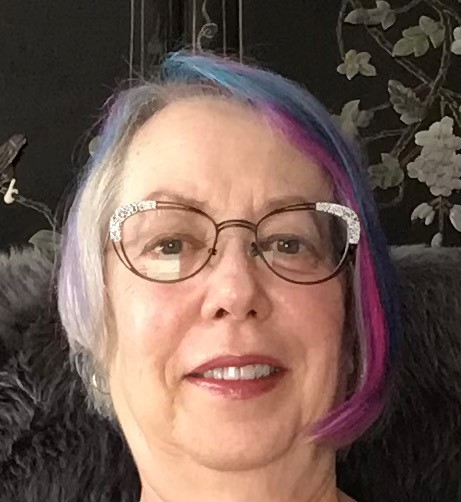
Marilyn Parker
“My focus is access. In particular I’m worried about both rural and First Nation's ability to access services both physically and technologically. I once took a wrong turn in Williams Lake and ended up in an area with no cell service, no email, and no gas stations. Access to health-care services is imperative for the success of our citizens in this province,” says Marilyn.
She feels so strongly on this topic that she is co-writing a paper for the research along with one of the adjunct professors from UBC about the importance of having a health-care provider.
“I am also interested in providing supports to people in directing their own health-care. Right now, I can have a phone call with my specialist; but can I continue to do that as I age? I also wonder how health-care is going to transition and how we will support innovation and provide access for all.”
Bringing more than just a patient perspective
In addition to her experience as a patient and person accessing health services, Marilyn brings a host of other skills to the Interior Health projects she’s part of. As a retired banker, she has extensive experience in human resources, management, and auditing. She also has a degree in process management.
But the skill Marilyn feels is most valuable to her work with Interior Health is her ability to listen.
As part of her work on the B.C. Primary Care Research Network Patient Advisory, she was asked to speak at a meeting of doctors and caregivers. “I told them in business I learned the extremely important skill of public speaking, but more importantly the value of listening. I encouraged the doctors and practitioners to do the same with their patients” says Marilyn.
The role of partners in improving care
Providing feedback is an important part of the role for partners like Marilyn. “On a recent hospital visit, I noticed a sheet on the door with the acronym WOW! (Who, Occupation, What),” says Marilyn. “I was impressed to see the majority of the people who came to my bedside used WOW! I gave feedback to the manager in charge of that unit about how well the staff did, and I think comments like mine help to reinforce the use of it.”
As partners in health care, Marilyn believes patients, clients and the public can help improve the system by providing feedback. She has also seen the benefits to health care when organizations like Interior Health leverage the perspective and experience of members of the public. As Marilyn says, “Everybody’s heart is in this work. What more could you ask for?”
A word about partners
When asked to describe the role she plays with Interior Health, Marilyn prefers the term patient partner. She recognizes that these roles are all about partnership and says "It is a journey that we make together".
These stories are built on the work started by Tatianna Henderson, Student Intern, Quality & Patient Safety.






